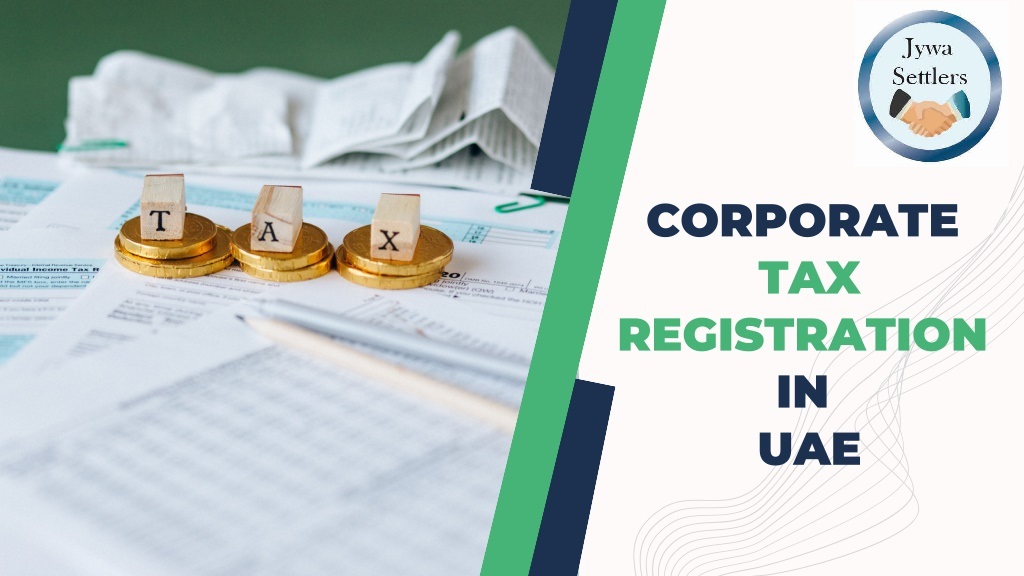As the UAE prepares for a new era of corporate taxation in 2024, it is essential for businesses operating in the country to equip themselves with the necessary procedures and knowledge to comply with the upcoming corporate income tax regulations. Successful enterprises and organizations seek corporate tax advisory in Dubai from established partners for adherence to the new policies. Let’s explore the new corporate tax compliance requirements in the UAE in 2024 in this edition.
Registration for Corporate Tax The implementation of corporate tax in the UAE is scheduled to begin from the first financial year starting on or after 1st June 2023. All companies, including those operating in free zones, are required to register for corporate income tax, irrespective of their existing VAT registrations. The Emara Tax portal on the Federal Tax Authority’s (FTA) website facilitates this process, offering a seamless registration experience. The registration process is straightforward, and it won’t take more than 30 minutes to complete. A comprehensive video guide is available on the FTA website to assist businesses. Even companies that have already registered for VAT and Excise Tax can complete their corporate tax registration through the portal. Businesses that are not currently registered for Excise Tax or VAT first need to create a new user profile on Emara Tax. Next, they need to choose corporate tax registration and complete the application process. For the application to be successful, it’s crucial to provide accurate information and update the supporting documents.
Required Documents for Corporate Tax Registration The necessary documents to complete corporate tax registration for Legal Persons include:
- An Emirates ID of the authorized signatory
- Proof of authorization (POA/MOA) for the signatory
- Trade license or business license
- Passport The FTA requires businesses to provide accurate percentages of shareholding that correspond to the actual holdings of the owners and align the date of incorporation with the commencement date of the company as per the MOA. Entities must also provide the tax period. Businesses willing to form a Corporate Tax Group have to register individually. They need to obtain a Tax Registration Number and apply to establish a Corporate Tax Group at a later date, following FTA’s guidelines. Maintaining Proper Accounting Records The corporate tax law in the UAE mandates businesses to maintain specific accounting records. Companies must seek assistance from professional teams for compliant bookkeeping and accounting. Reputed tax consultants in Dubai can provide the necessary assistance and advice in this regard.
Filing a Corporate Tax Submission This is a crucial step that businesses must complete once the first taxable period comes to an end. Even if your business qualifies for tax exemption, you need to file a tax submission with the FTA.
Corporate Tax Rates Businesses Must Know The corporate tax rates in the UAE are based on annual net profits.
- Tier 1: For companies with annual net profits up to AED 375,000, no tax needs to be paid
- Tier 2: For companies with profits of more than AED 375,000, a 9% tax rate applies
- Tier 3: Large MNCs need to pay tax at a different rate as per OECD Pillar Two guidelines
Corporate Tax for Free Zone Companies Contrary to common belief, free zone businesses are not completely exempted from corporate income tax. However, Qualifying Free Zone Persons may not have to pay tax once they fulfill criteria like making qualifying income, maintaining adequate substance, and adhering to transfer pricing requirements.
Relief for Small Businesses Businesses with revenue below AED 3 million per tax period may qualify for exemption from corporate income tax.
Calculating Taxable Profit Taxable profit is calculated by deducting business-related expenses from revenue. Special rules apply to expenses such as interest, salaries, foreign branches, and entertainment.
Differentiating VAT and Corporate Tax Businesses in the UAE collect VAT from customers while selling products or services. On the other hand, they pay corporate income tax on their annual net profits. Therefore, VAT-registered businesses should also register to pay income tax.
In the rapidly evolving landscape of corporate taxation in the UAE, compliance is key to avoiding penalties and ensuring smooth operations. At JYWA SETTLERS, we offer comprehensive corporate tax services to help businesses navigate the complexities of the tax code with ease.
Here’s how our team of expert corporate tax consultants can assist you:
- Corporate Tax Registration: We guide businesses through the process of registering for corporate tax, ensuring compliance with all relevant regulations and deadlines.
- Impact Assessment: Our consultants conduct thorough impact assessments to help businesses understand the implications of corporate tax on their operations and finances.
- Corporate Tax Return Filing: We provide support and guidance in filing corporate tax returns, helping businesses meet the Federal Tax Authority’s deadlines and avoid penalties.
By partnering with JYWA SETTLERS for your corporate tax needs, you can rest assured that your compliance requirements are taken care of, allowing you to focus on growing your business with peace of mind. Contact us today to learn more about our corporate tax services.












